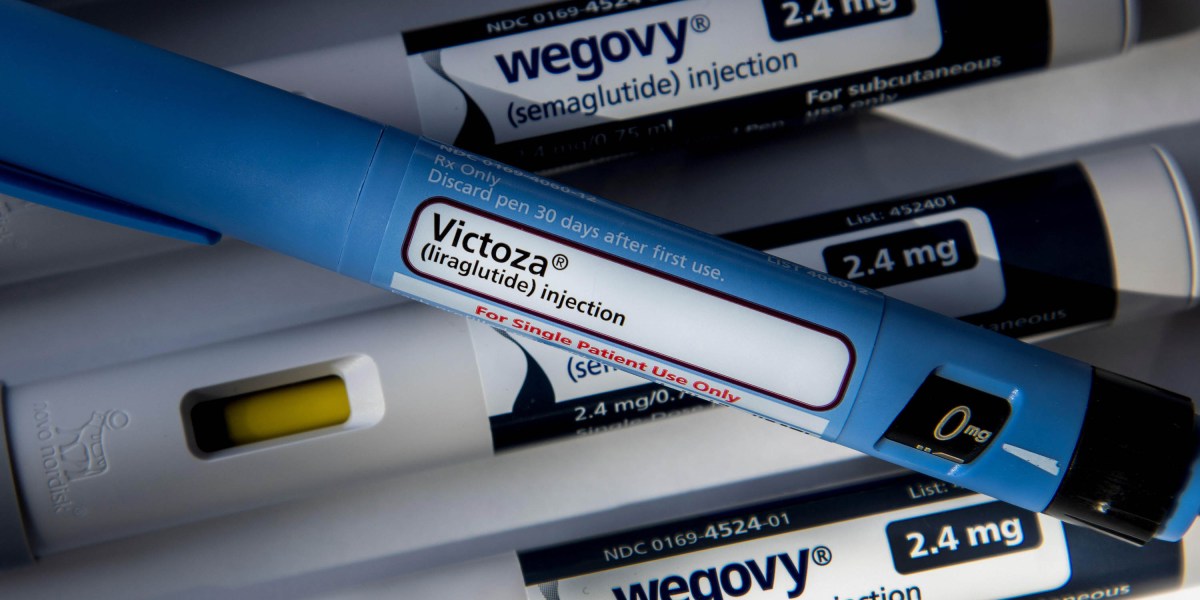The anecdotes are everywhere: A person on a weight-loss drug finds hunger isn’t the only craving that seems to stop.
Those are the types of clues Eli Lilly’s CEO, David Ricks, says his company will pursue next year, testing whether its GLP-1 drug, tirzepatide (called Mounjaro for diabetes treatment, and Zepbound for weight loss), could help with addiction to alcohol, nicotine, and “other things we don’t think about [as being] connected to weight.”
In comments he made in December, Ricks said the drugs might be “anti-hedonics”—meaning they counteract our hedonistic pursuit of pleasure, be it from food, alcohol, or drugs. A study this year mining digital health records found that opioid addicts taking the drugs were about half as likely to have had an overdose.
Sleep apnea
This idea goes back a ways, including to a 2015 case study of a 260-pound man with diabetes and sleep apnea. When he went on the drug liraglutide, doctors noticed that his sleeping improved.
In sleep apnea, a person gasps for air at night—it’s annoying and, with time, causes health problems. This year, Eli Lilly published a study in the New England Journal of Medicine on its drug tirzepatide , finding that it caused a 50% decrease in breathing interruption in overweight patients with sleep apnea.
Longevity
This year, the U.S. Food and Drug Administration approved Wegovy as a cardiovascular medicine, after researchers showed the drugs could reduce heart attack and stroke in overweight people.
But that wasn’t all. The study, involving 17,000 people, found that the drug reduced the overall chance someone would die for any reason (known as “all-cause mortality”) by 19%.
That now has aging researchers paying attention. This year they named Wegovy, and drugs like it, among their the top four candidates for a general life-extension drug.




